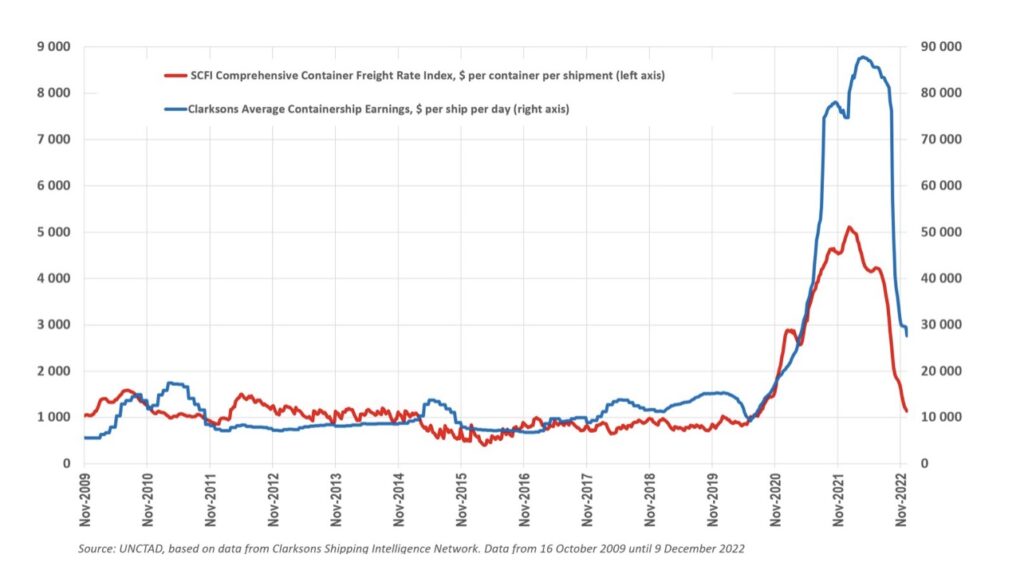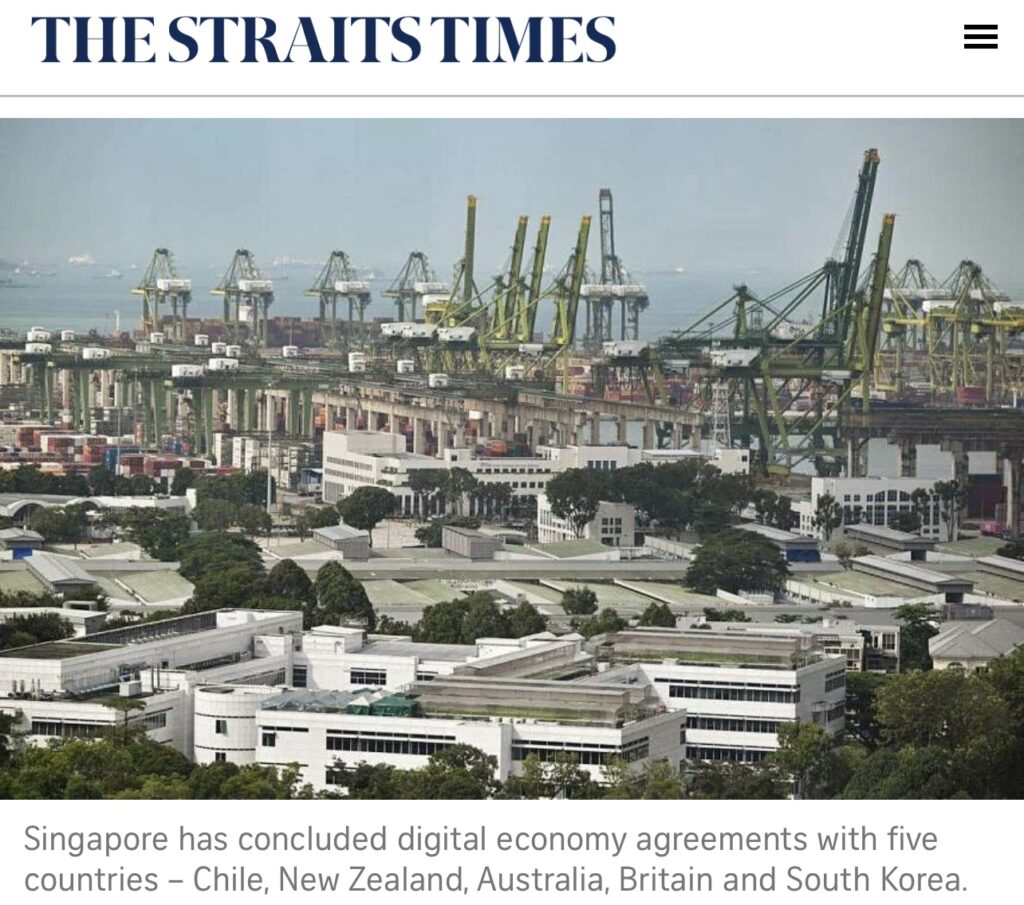The period of 2020 to 2022 saw a historical spike in container freight rates.
My old friend and colleague Jan Hoffman, Head, Trade Logistics at UNCTAD, has written another insightful piece about the world of trade of today. A thought provoking text.

Jans conclusions are;
- If we have learned one thing from the 2020-2022 supply chain crunch it is that a shortage of shipping supply capacity can lead to extreme surges in freight rates, which have a strong bearing on food security, inflation, and global value chains.
- What lies ahead of us with the energy transition in maritime transport is potentially a shortage of shipping capacity in many shipping markets on numerous occasions over the next decades.
- We need to provide a stable multilateral framework – ideally via the IMO – to avoid this to happen. Both, public and private sector, need to direct funding towards sufficient investments in ports, ships, energy generation and distribution.
Read the article here: The end of the supply chain crisis and what we need to learn for the next one(s)
Source: Safety4Sea
If you go to Dubai, don’t miss The Museum of the Future. Great experience.

When it comes to the aviation technology, the sky is the limit.

A very interesting concept.
Click here: Museum of the Future
Global trade linkages and connectivity can be strengthened through digitalisation, which will make international trade faster, more secure and cheaper.
Singapore has always been at the forefront on digitalizatuon and intends to stay ahead.

Mr Gerard Hartsink, chair of the Initiative’s industry advisory board, said: “Digital trade requires common standards, taxonomies, and a trusted ecosystem for managing and sharing the massive amounts of data required by all market participants involved in the international supply chains and for the trade finance processes. With this work, we aim to substantially contribute to this quest, together with the many industry partners who have been critical to our journey.”
”…having common standards across jurisdictions will boost efficiency and make worldwide trade interoperable”
S. Iswaran. Minister-in-charge of Trade Relations, Singapore
“As articulated in our Trade 2030 strategy, digitalisation is integral to Singapore’s plans to strengthen our value proposition as an international trading hub,” said Mr Iswaran, Minister-in-charge of Trade Relations
To read the article, click here: Digitalisation will make international trade faster and cheaper
Source:TheStraitTimes






You must be logged in to post a comment.